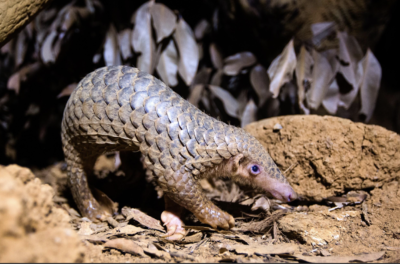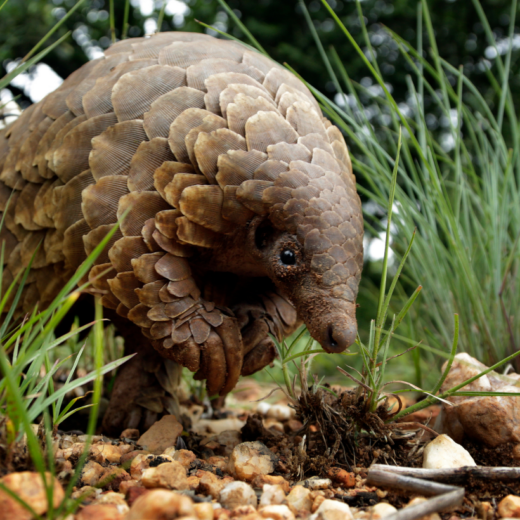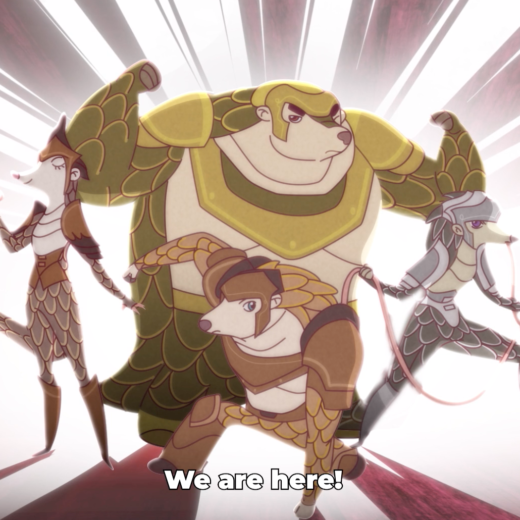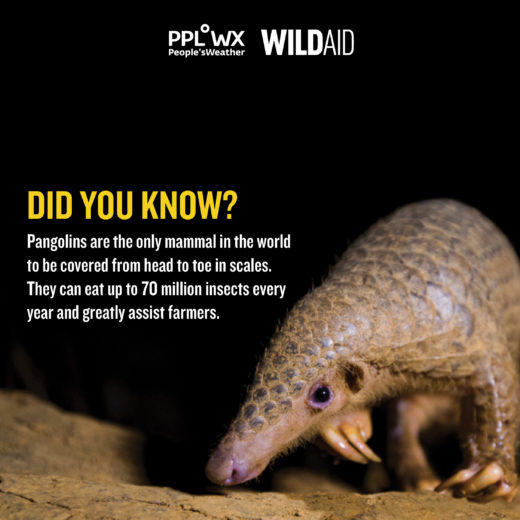
Pangolins have had a rough start to 2020 – though truthfully it’s been a rough couple of decades. In just the first six weeks, Nigeria Customs seized 9.5 tonnes of pangolin scales, representing tens of thousands of animals, while scientists in China have suggested a link between pangolins and the novel coronavirus.
It was over three years ago that the UN Convention on International Trade in Endangered Species of Wild Fauna and Flora (CITES) voted to protect all eight species of pangolins from international trade. Yet the pangolin remains the world’s most heavily trafficked mammal. It is estimated that up to 200,000 are taken from the wild every year across Africa and Asia to meet demand for their scales and meat.
And now they may be linked to an epidemic that has commanded the attention and vigilance of the whole world. In preparing to celebrate World Pangolin Day on February 15th, it’s hard to overlook the glaring fact that the pangolin’s future is uncertain.
Are pangolins vectors of disease?
Research is still being conducted but even before the novel coronavirus made headlines, scientists thought pangolins could be a good candidate to be an intermediate host for a virus. This is in part due to the nature of the multinational illegal trade, the shear amount of pangolins being traded, the animal’s low threshold for stress, and possibly a weak immune response to fight off infections.


“Pangolins, as with other illegally-traded species, may become important reservoirs to possibly immunologically-naive populations of humans, livestock and other wildlife along the entire illicit trade supply chain,” says Sean Heighton, who is studying molecular traceability at the Laboratoire Evolution et Diversité Biologique, Université de Toulouse III (IRD). “The same can be said if pangolins are to be captive bred for consumers. In order for these pangolin farms to be a success, they would need to have a large enough founder population (requiring the capture of wild pangolins likely from different regions and thus naive to each other’s pathogens as well as the environmental pathogens of the facilities they are placed in), place them in an unnatural setting (stressful conditions can result in reduced immune responses to infection), try to provide them with nutritional requirements that are extremely specialized (nutrition from ants and termites) and allow them to be in continuous contact with humans. The health implications, not only for humans but for the pangolin populations placed in these conditions, may be noteworthy.”
The idea is that when pangolins are captured and smuggled for thousands of miles, often without food or water, they’re more likely to become hosts for a pathogen to live and multiply. These animals, along with the many other species they are traded with, may become “disease reservoirs” that can serve as a source from which other individuals, including humans, can be infected. If left alone in the wild, the shy, docile pangolin is a harmless creature filling an important ecological niche, controlling pest populations by individually consuming some 70 million insects per year. In other words, pangolins are unlikely a threat to anyone unless they are captured, handled, traded and consumed by people.


Pangolin Demand in China and Vietnam
The use of pangolin scales in traditional medicine in both China and Vietnam is a major contributor to the pangolin’s endangered status. Despite all trade in pangolin meat and scales being banned internationally, Vietnam continues to be a major player in the trafficking chain. China still allows domestic sales of approved medicines containing pangolin scales despite a dwindling legal supply.


But recently, China has taken steps to address the use of pangolins in traditional medicine. Last August, the National Medical Insurance and Human Resource and Social Security Bureau announced the country’s national insurance will no longer cover medicines containing pangolin as well as other products derived from threatened and endangered species. Vietnam has a similar regulation in place. China’s Wildlife Conservation Department of the National Forestry and Grassland Administration (NFGA) is also considering increasing the pangolin’s national protection status to Class I.
What’s Next?
In response to the coronavirus outbreak, more Chinese citizens are demanding sustained action against illegal wildlife trade and consumption. China has fast-tracked its legislation work related to wildlife, according to an ECNS media report. Later this year, the top legislature is expected to amend its law on the protection of wildlife as well as laws on animal epidemic prevention.
Wang Ruihe, an official with the Legislative Affairs Commission of the National People’s Congress (NPC) Standing Committee said on Monday, the potential public health security risks caused by trading and eating wild animals have drawn worldwide concern, stressing the need to improve laws and regulations related to wildlife.
But legislation is only part of the solution, said Professors Jie Li and Jun Li of Guangzhou University in a recent article in The Lancet.
“The ultimate solution lies in changing people’s minds about what is delicious, trendy, prestigious, or healthy to eat,” they said. “We believe that through a change in the outdated and inappropriate tradition of consuming wild animals and their products, we can conserve the natural habitat of wild animals, and humans and other living creatures can coexist in harmony.”


What WildAid is Doing
As part of its behavior change campaign work in China and Vietnam, WildAid is working closely with these governments to reduce consumer demand for pangolins. With the help of legendary ambassadors like Jackie Chan and superstar Angelababy, our program aims to raise awareness of the pangolin poaching crisis and to reduce consumer demand. We are currently developing new activities to build on the current government resolve and pending new regulations. And working with our partners in media and the government, we will amplify messages to end the consumption of pangolin meat and scales, establishing this a societal norm.
A 2015 WildAid survey found that 70% of respondents in China believed pangolin scales had medicinal value. Eighteen months after launching our campaign, this figure had dropped 28.5% (in 2017, 50% believed in the medicinal value of scales), demonstrating the impact of our messaging on people’s perceptions of pangolins. Despite this progress, the number of respondents admitting to having purchased pangolin products continued to hover around 9% in 2017, indicating there is still demand for the products and much more work is needed.


Meanwhile in Africa, WildAid is working on a public awareness campaign that we hope will inspire a sense of national pride in pangolins and start a movement to end live wildlife markets. WildAid recently traveled to Nigeria, a major pangolin trafficking hub, with Benin-born actor Djimon Hounsou to investigate wildlife markets and rescue live pangolins.


“Africa needs to heed the lessons from China and close down these wildlife markets immediately,” said WildAid ambassador and Academy Award-nominee Hounsou. “As well as a massive risk to health, they endanger species and are inhumane.”
Despite all the doom and gloom news, we invite you to celebrate these magnificent creatures with us on World Pangolin Day.
Let’s make sure we harness the recent international attention for good, spotlighting all of the quirky, incredible (and harmless) features of these unique creatures who have existed on this planet for some 70 million years, while recognizing the urgency with which we must act to save them. Perhaps this is the watershed moment we needed to cement their future once and for all. #PangolinPower
Stay in touch and get the latest WildAid updates.
SIGN UP


